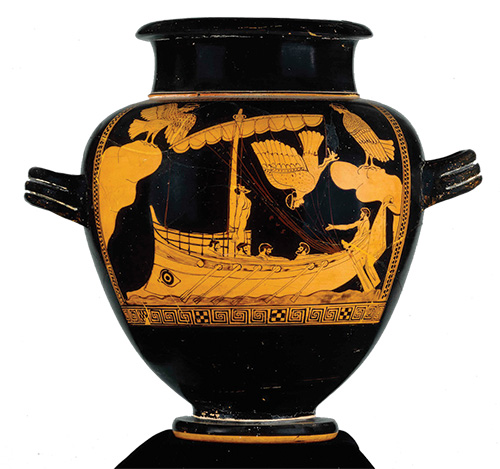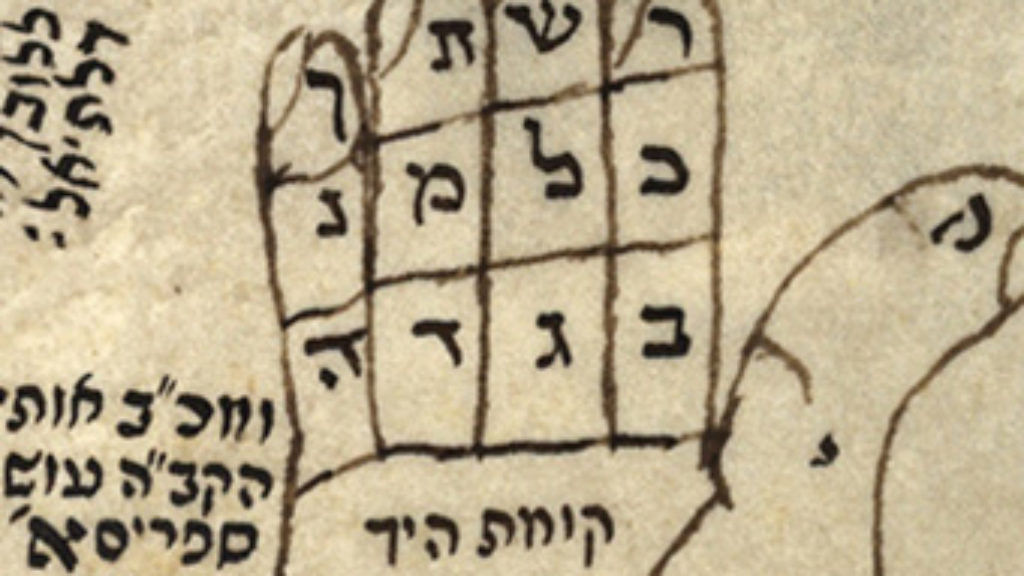Is Repentance Possible?
The other day YouTube decided that I ought to watch a strangely mesmerizing psychologist from Canada named Jordan B. Peterson berate me over my failure to follow his 10 rules for success. His first rule was to “stop doing the things that you know are wrong,” when you know that they are wrong.
This is a good, straightforward rule. It’s also a pretty easy one to follow, if you are a robot or an angel. I don’t think that Dr. Peterson mentioned that it was Aristotle who first tried to seriously work through the question of how it is that we frequently seem to do things that we know to be against our better judgment. Socrates had said that, although a person may be wrong about what is good for him, “No one goes willingly toward the bad,” which seems obviously true until one remembers that, in fact, one does so fairly often. After all, I ought to have tied myself to the mast of Microsoft Word and resisted the siren call of YouTube whose window I had ostensibly opened in order to . . . well, I am not quite sure what I opened it for anymore, but there must have been a good reason, and it had nothing to do with Jordan B. Peterson or ad words or Google’s super-secret distractibility algorithm for middle-aged men. (I’ve been wondering if this Yom Kippur I should add a line to the Al Chet litany of confession: “And for the sin of opening browser windows of distraction,” though perhaps someone has already done it . . . how would I Google that?)
Akrasia, which is often translated as weakness of the will, is, as Aristotle says in the Nicomachean Ethics, a puzzle: If I think that, all things considered, it would be better for me to do Y than X, and I want to do Y more than X, then I will do Y, not X. But sometimes I don’t, and you don’t; we go on X-ing when our practical reason clearly tells us that we should Y. It is, one might almost say, our natural state to frequently and incontinently X.

In his deep, densely argued new book Ethics in the Conflicts of Modernity: An Essay on Desire, Practical Reasoning, and Narrative, Alasdair MacIntyre discusses such an akratic person “who strongly desires something that, so she judges, she has excellent reason not to desire.” Perhaps she is tempted to stream a self-help video, which though potentially useful will, nonetheless, derail her from a more important task; but perhaps the stakes are higher, and she is avoiding, say, a difficult but necessary conversation, or choosing a fun but frivolous relationship over a deep one. If she understands her predicament correctly, according to MacIntyre, then she will see that “her predicament is one of desiring a lesser and inappropriate good over a greater and appropriate good.” Consequently, MacIntyre writes, “she has every reason to redirect” her desires, but reasons alone are not quite enough. Somehow, she must “draw upon the resources provided by her earlier moral training and education and by her present social relationships if she is to act rightly.” In short, she must repent, or, as the Jewish tradition has it, “return” to the priorities that she knows are right. MacIntyre writes:
Aristotle provided an outline account of her situation, partly in what he said about akrasia . . . and partly elsewhere. Later Aristotelians, most notably Aquinas, have provided further resources, but the NeoAristotelian account of such conflicts needs further development and rendering into contemporary terms. Until these have been provided, there is a psychological lacuna in NeoAristotelian theory . . . [but] I see no reason to believe that what is needed cannot be provided.
One wishes that he had given us the full theory in this book rather than a suggestive promissory note. But this would be a churlish demand to make of an 88-year-old philosopher who has helped to reframe the questions of ethics as much as anybody in the last half-century.
Thirty-six years ago, in After Virtue, MacIntyre famously argued that modern moral thinking was a mess, a rubble heap of incompatible theories leaving us with an incoherent moral vocabulary in which we appeal to the greatest good for the greatest number at one moment, to rights and duties at another, and to something like transcendent moral law at a third. This left MacIntyre with his famous challenge: Nietzsche or Aristotle? Either morality as we know it should be razed to the ground, or we should junk the implausible systems of what he called “the Enlightenment project” and attempt a qualified return to Aristotle’s naturalistic, character-based virtue ethics.
A quarter-century earlier the Cambridge philosopher Elizabeth Anscombe had suggested that we simply drop “the concepts of obligation, and duty—moral obligation and moral duty, that is to say—and of what is morally right and wrong,” and MacIntyre’s argument can be taken as filling out Anscombe’s suggestion. As Anscombe wrote:
[T]he moral sense of “ought,” ought to be jettisoned if this is psychologically possible; because they are survivals, or derivatives from survivals, from an earlier conception of ethics which no longer generally survives, and are only harmful without it.
Anscombe herself was a Catholic, but with the modern eclipse of what she called Judaism and Christianity’s “law conception of ethics,” she had also recommended a return to Aristotle. As is partly evident from his reference to St. Thomas Aquinas in the quote above, MacIntyre himself ended up converting to Catholicism shortly after publishing After Virtue (one can see the signs of it already in that book). These are mere biographical facts, but they may make one wonder just how possible it is to do without that moral “ought,” and in particular whether precisely that sense of obligation might be one of the necessary resources for the kind of character reform, or repentance, that MacIntyre describes.
On the Aristotelian view, morality is internal to human life rather than a matter of obedience to a set of abstract rules or an external authority. Briefly, we have dispositions to act or react in certain ways, and these dispositions are shaped by education, admonition, example, and habit. The best of these traits will fall between the extremes of behavior: It is bad, for instance, to be either timid or foolhardy, but it is good to follow the “middle path” and be courageous. So, courage is a virtue, and timidity and foolhardiness are vices (though far from the worst ones).
What makes courage and the other virtues—for instance, generosity, truthfulness, and temperance—good is the natural fact that they help a human being to thrive and be happy, in the widest and highest possible sense of that word. Therefore, one ought to develop the virtues because they are, as we now say, “life skills” which will help us succeed, not because we morally ought to, in the sense of which Anscombe disapproved. How, exactly, such a system can be, or rather was, adapted to a religion based on divine authority is a question to which I shall return.
In the meantime, however, it’s worth noting just how hard a task MacIntyre’s akratic woman faces. Her character has been formed by relationships and incidents since birth, many of them forgotten, not to speak of brain chemistry and the blind impress of events. Her actions and desires are, by now, governed by stable habits of action, which have been with her since childhood. How likely is it, really, that, in the middle of the journey, she, or any of us, can change these habits, turn vice into virtue? Perhaps this puts the question too strongly, since MacIntyre describes her as a person who is merely tempted by a “lesser and inappropriate good,” rather than what is actually bad (the distracting YouTube video or the frivolous friend, not the stiff drink in the afternoon). But, after all, bad desires do happen to good people, even those who have been fortunate enough to grow up with a loving family, good friends, and a well-ordered community.
Aristotle argues that weakness of the will is not quite a vice; it’s more, he says, like epilepsy, and, after the temptation has passed, the weak-willed person regrets his actions. But he does not tell us how such regret can be transformed into repentance. As MacIntyre frankly admits, there is a gap, “a psychological lacuna,” in the theory, for Aristotle, for his medieval Christian commentator Aquinas, and for us.
As it happens, the Jewish approach to repentance was authoritatively codified by Thomas’s great Aristotelian predecessor Moses Maimonides, and his approach demonstrates both the strengths and the weaknesses of virtue ethics, as well, perhaps, as the extent to which moral thinking was messy even before the modern world.
Maimonides once posed an interesting question which had never occurred to Aristotle (in fact, it wouldn’t have made any sense to him), though the Muslim philosopher Alfarabi had earlier asked a similar question for similar reasons. The question is: Who is better, “the man of self-restraint [who] performs moral and praiseworthy deeds,” but does so only by struggling with his desires and dispositions, or the man who “acts morally from innate longing and desire” because he has a virtuous character? In this early essay, Maimonides says that philosophers “unanimously agree that [the virtuous man] is superior to, and more perfect than, the one who has to curb his passions,” even if they are behaviorally indistinguishable. But, he says, the rabbinic tradition regards the person who must work to subdue his temptation and do the right thing—or stop doing the wrong ones—as better. Among the famous rabbinic sayings he quotes are “the greater the man, the greater his evil inclination,” and “according to the difficulty is the reward.”
In the end, Maimonides explains away the rabbinic statements that seem to prefer the conflicted man who wrestles with his desires to the virtuous one, but he cheats a little in order to get his rabbinic and philosophical authorities on the same page. The details of how he cheats—some of his prooftexts are straw men, and he ends up invoking a distinction between rational and irrational laws that he doesn’t really believe—are less important than the fact that he feels compelled to do so. For the tension he identified is a genuine one.
If ethical action is a consequence of accepting “the yoke of the law,” and the primary object of evaluation is the individual act, then the person who, against his own inclinations, bends himself to the commanded task is heroic. If ethical action is a matter of one’s character, then that very same person will be just barely passable, like an alcoholic who is “on the wagon,” at least for now.
One can see this tension still at work near the outset of Maimonides’s great code of law, the Mishneh Torah. In its first volume, he codifies both Hilchot De’ot, “Laws of Moral Traits,” and Hilchot Teshuvah, “Laws of Repentance.” In Hilchot De’ot he briskly sketches an Aristotelian account of the virtues as a set of acquired habits whose ideal lies between two extremes. One case in which he unambiguously endorses straying from the middle path of classic virtue is instructive:
There are some dispositions in regard to which it is forbidden merely to keep to the middle path. . . . Such a disposition is pride. The right way in this regard is not to be merely meek, but to be humble-minded and lowly of spirit to the utmost. And therefore was it said of Moses that he was “exceedingly meek,” (Num. 12:3), not merely that he was “meek.” Hence, our sages exhorted us, “Be exceedingly, exceedingly lowly of spirit” (Ethics of the Fathers 4:4). They also said that anyone who permits his heart to swell with haughtiness has denied the essential principal of our religion, as it is said, “And your heart will be proud, and you will forget the Lord your God” (Deut. 8:14).
This is very far from the virtuous person Aristotle called the “great-souled man” who thinks himself worthy of great things because he really is worthy of them. For Maimonides, it would seem impossible for such a man to understand that he is obliged to bow to the law and its giver, hence the deviation from the golden mean even by that greatest-souled of prophets, Moses.
Nonetheless, although the shadings are different, the overall picture of moral life given in “Laws of Moral Traits” is an Aristotelian one. A good and happy human life is the natural result of the cultivation and exercise of the virtues, which is, more or less, equivalent to following the commandments of the Torah. Indeed, even the afterlife is a natural result of the highest of these virtues, those of the intellect. On such a picture, it is almost as impossible to have a good, flourishing life without a good upbringing, parents, and education as it would be to cultivate a vegetable garden in permafrost. This makes the religious obligation to repent a bit of a problem. “Ought,” as they say, “implies can.”
In his “Laws of Repentance”, Maimonides famously defines complete repentance as having been demonstrated when a person is faced with an opportunity to commit the same offense and refrains from doing so “because of his repentance rather than fear or failure.” Since it is a commandment to repent, this is incumbent upon all Jews, but what if some of them lack the resources to pull this off?
In his discussion of repentance, Maimonides devotes an entire chapter to insisting that we have free will, but that really sidesteps the problem. Aristotle had argued that choosing virtue or vice was up to us. But he also thought such choices had a shelf life; there is a time when it is unfortunately too late to become a courageous or truthful person, just as it can be too late to begin training as a triathlete or a poet. How in such a system can repentance be obligatory? Yom Kippur, for instance, might seem like a good tool to rethink one’s habits and reprioritize one’s desires, but focusing on particular sins is really secondary to the vices that gave rise to them, and vices cannot be erased in a day.
One moment when one sees the strain between Maimonides’s commitments to an ethics of character, on the one hand, and an ethics of obligation, on the other, is in what he writes about repentance in old age:
If, however, a person only repented in old age, at a time when he is no longer capable of doing what he had done, even though this is not an excellent form of repentance, he is counted as a penitent. Even if he transgressed his entire life and repented on the day of his death and died as a penitent all of his sins are forgiven.
One can, just barely, reconcile such a statement with the virtue ethics that is laid out in Hilchot De’ot, but it is also clear here that Maimonides has reservations about someone whose repentance consists largely or entirely of regret. Indeed, what can such a verbal repentance even mean if it does not draw upon the kind of moral resources that MacIntyre enumerated and does not issue in the kind of behavioral change that Maimonides set out as a criterion of success? One suspects that Maimonides would have been tempted to agree with Montaigne, who said that he saw “nothing of conscience” in deathbed repentance: “[C]hagrin and feebleness imprint on us a lax and snotty virtue.”
But is this really fair? And would one want to live in a moral culture in which repentance was no longer a possibility for those who were badly raised, or fully formed, or near death? Perhaps what Maimonides and the Jewish tradition he is summarizing are suggesting is that if one does not have the resources to change one’s desires, then God will provide them. Or, alternatively, that in insisting that repentance is always both obligatory and possible, that “the gates of repentance” reopen every year, the tradition itself provides the resources to “stop doing the things that [one] know[s] are wrong,” though it does not guarantee that one will.
What then of Maimonides’s virtue ethics? Perhaps his inconsistent—or at least tension-ridden—system in which our moral lives are described in terms of both virtues to cultivate and commandments to be obeyed is closer to our felt experience than either is alone. Moral thinking, it turns out, was always messy.
Andrew N. Koss’s response to Abraham Socher can be found here.
His rejoinder to Andrew N. Koss can be found here.
Comments
You must log in to comment Log In
Suggested Reading
One State?
Sari Nusseibeh's recent book is a new formulation of an old proposal.

Even If the Ship Is Not Sinking
Some of the displaced persons who made their way from Germany to the new State of Israel felt more displaced in their new homeland than in the camps they left behind.

The Book of Radiance
Daniel Matt’s massive new English edition of the Zohar is not only a great translation, it is also one of the great commentaries on the classic work of Jewish mysticism. Insofar as it is possible, Matt has brought the unfathomable, mysterious, and poetic depths of this “book of radiance” to the English reader.
Loaves in the Ark
A striking tale of pure faith, divine fiat, and free food from Rabbi Moses Hagiz's

gershonhepner
YOU HAVE TO CHANGE YOUR LIFE
“You have to change your life,” declared the head upon the torso
of Apollo to the poet Rainer Maria Rilke, speaking German.
The same applies to Jews each day, of course, but never more so
than between Rosh Hashanah and Yom Kippur. Wih this thought I would end my sermon,
except that it sounds more than just a little hypocritical,
because I must admit that I have very rarely changed my life in ways I should.
Although I have been in the Days of Awe of all my failings critical,
any changes for the better have been no more that a mere unlikelihood.
[email protected]